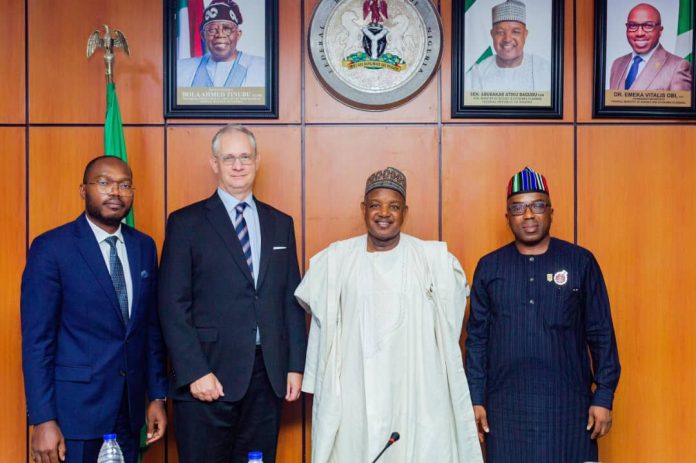The Federal Government says it is negotiating a $500 million loan facility from the World Bank for the Human Capital Opportunities for Prosperity and Equity (HOPE) project in the country.
Minister of Budget and Economic Planning, Sen. Abubakar Atiku Bagudu disclosed this during a courtesy visit on him by the International Monetary Fund (IMF) Mission Chief for Nigeria, Mr. Axel Schimmelpfennig yesterday.
The loan facility, according to the Minister, will increase the availability and effectiveness for financing for basic education and primary health care in the various states of the federation.
He said the fund will enhance transparency and accountability for basic education and primary health care in addition to improving recruitments, deployments and better performance management of Teachers.
While appreciating the support of the World Bank, Bagudu said that the Nigerian Constitution is the legal framework that provides the rules and procedures that guides the budget process in addition to empowering the Federal and State governments to make expenditures in the preceding year for the purpose of meeting expenditure necessary to carry on the services of the government.
“This expenditure can continue for a period not exceeding six months or until the coming into operation of the law as can be seen on Chapter 5, Part 2 Section 122 of the Nigerian Constitution,” he said.
Bagudu explained further that the reforms embarked on by the Bola Ahmed Tinubu’s administration were aimed at developing and implementing economic and tax reforms that will guarantee more functional Public Financial Management (PFM) systems in the country. According to him, “The economic reforms are necessary decisions to put the Nigerian economy on the right track.”
He assured the IMF team that though Nigeria is experiencing a number of challenges such as hardship of citizens as a result of removal of fuel subsidy, floating of foreign exchange, electricity reforms that distributed citizens into bands, Nigeria is on course to economic recovery.
The Minister appreciated the willingness of the IMF to support Nigeria but however called for more support in the area of resource mobilisation from multinational partners in order for the government to provide developments in all sectors of the economy.
Earlier, the International Monetary Fund (IMF) Mission Chief for Nigeria Mr. Axel Schimmelpfennig said he was in the country to have interactions with the Minister on the workings of the Nigerian budgeting process with particular emphasis on the simultaneous implementation of the 2023/2024 budgets and supplementary budgets in the same year in preparation for the publication of the 2025 annual report of the World Bank.
Schimmelpfennig welcomed the tax reforms of the federal government as increased revenue generation will ensure more developments for Nigerian citizens and thus promised the country of more IMF support for Nigeria’s developmental needs.
Nigerians have expressed worry over the persistent borrowing by the present administration which currently put the country’s total public debt at N134.3 trillion as of the second quarter of 2024.


